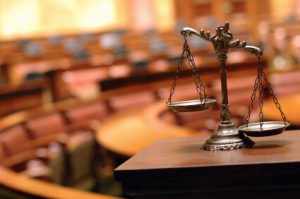
You have received a notice from the court stating that your attendance is required. All the preparation of your matter has been completed, and your documents have been disclosed, served, and filed. The day has come where your court appearance is taking place, but there are a couple things that you should be mindful of. Below is a list of pertinent information that you should know before your big day.
Click here to schedule your free consultation today!
The Court in which your matter is being heard will send you a notice of when your attendance is required. This will include valuable information such as the date, time, location, and courtroom number where your specific matter will be heard. The notice will also include any rules to abide by – specifically focusing on deadlines as to when your documents need to be served and filed prior to your court attendance taking place.
The notice will also provide warnings such as if you do not attend. So, if you are unable to do so, you must be proactive in scheduling a new date or penalties can be incurred at the discretion of the Deputy Judge assigned to your matter. If you have any questions or concerns about a Notice you received from the court, contact Precision Paralegal Services and we can answer any questions you may have pertaining to the notice.
*Given the circumstances because of COVID-19 and the courts not being fully operational at this time, the normal procedures outlined below may differ.
There are several types of appearances where your personal attendance is required. The notice you receive will indicate what type of hearing you are attending. The different types of court appearances are listed below.
If the Defendant has not defended the action, you can schedule an Assessment Hearing to show the damages you are requesting outlined in your claim. The Deputy Judge hearing your matter may grant judgment, and at the amount they feel satisfied are proven to be owed.
a Garnishment Hearing can be requested by either party – either the garnishee does not agree with the notice of garnishment; or the garnishor is not receiving the garnished amounts as set out to be paid by the garnishee. The Deputy Judge will hear the matter and order a resolution based on the facts presented.
If the Plaintiff is granted default judgment, they can serve a Notice of Examination on the Defendant. This will result in the parties attending court to determine how the judgment will be paid. The Defendant is to fill out and provide their assets, debts, incomes, and expenses, to help facilitate an appropriate plan for the judgment to be paid. The Deputy Judge will hear the facts and determine a resolution based on the facts presented.
If the Debtor does not attend a Notice of Examination or refuses to cooperate, the Creditor may schedule a Contempt Hearing as one final attempt to have the Debtor attend. A notice will be sent and is to be served. If the Debtor does not attend, a Deputy Judge may order the Debtor to be in contempt of court and have the Defendant jailed or fined.
When attending court and speaking to the Deputy Judge, it is strongly encouraged that proper court etiquette is in place. A few notes to keep in mind when attending your hearing:
Outside of court etiquette and being aware of the type of hearing you are attending; it is very helpful to keep the following tips in mind to ensure your court experience runs smoothly:
Need help in advance of your court appearance? Our staff at Precision Paralegal Services can help with preparing you to the best of our ability. With thousands of hours of court experience collectively under our belt, we can help put you in the best position to succeed. We are proud to offer extensive coaching services to help you walk through the hearing you are attending, at an hourly rate based on the paralegal you would be speaking with. Further, if you decide you do not feel comfortable attending the hearing on your own and wish to have legal representation, please feel free to contact our office and one of our paralegals would be more then happy to review and potentially assist.
Please note, the sooner you contact our office, the better opportunity it gives our staff to thoroughly review your matter and provide assistance to the best of our capabilities.
Click here to schedule your free consultation today!
We are one of the largest Small Claims Court focused paralegal firms in Canada. The Precision Paralegal team has been representing our clients for over 23 years. With over 150 years of combined experience and having completed over 20,000 court room hours, Precision Paralegal Services is the right choice for your matter.
We believe that using a paralegal firm should be cost-effective and significantly less expensive than using a traditional law firm. Our paralegals charge between $125.00 – $295.00 per hour as opposed to lawyers who can charge upwards of $500.00 per hour.